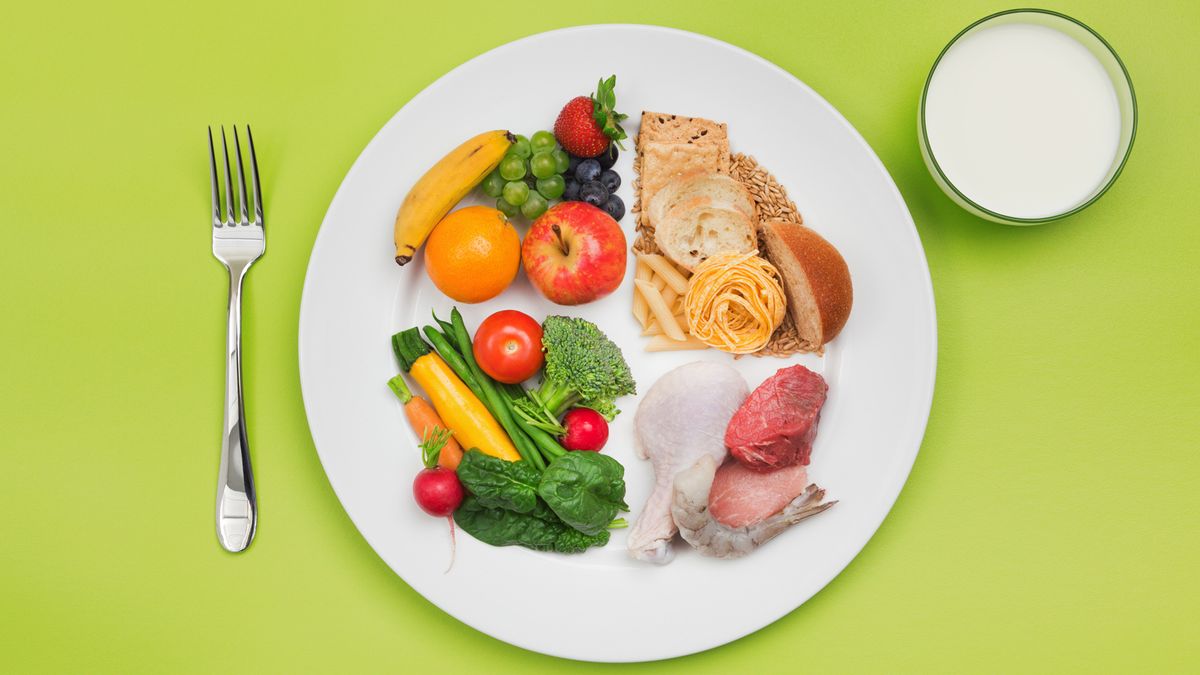Have you ever wondered what it really means to have a balanced diet? The concept may sound simple, but it’s often misunderstood. A balanced diet is not about cutting out entire food groups or restricting calories drastically; it’s about ensuring your body gets all the essential nutrients it needs to function optimally.

Why Is a Balanced Diet Important?
A balanced diet acts like fuel for your body. Without it, you’re more likely to feel fatigued, gain weight, or even develop chronic illnesses. Think of your body as a car; without the right fuel, it won’t run smoothly. Official Website
Misconceptions About Balanced Diets
Some people think a balanced diet is just eating salads or avoiding carbs. Others might believe it’s about consuming expensive superfoods. However, a balanced diet can be simple, affordable, and include a variety of delicious foods.
Components of a Balanced Diet
Macronutrients
Macronutrients provide energy and are essential for body functions.
Carbohydrates
Carbs are your body’s main energy source. Opt for complex carbs like whole grains, which release energy slowly.
Proteins
Proteins help repair tissues and build muscle. Incorporate lean meats, eggs, or plant-based options like tofu and lentils.
Fats
Healthy fats, such as those from avocados and nuts, are vital for brain health and hormone production.
Micronutrients
Micronutrients like vitamins and minerals are required in smaller amounts but are no less important.
Vitamins
Vitamin C boosts immunity, while Vitamin D strengthens bones. Include a variety of colorful fruits and vegetables in your diet.
Minerals
Calcium and iron are crucial for bone health and oxygen transport in the blood.
Water and Hydration
Water is often overlooked but essential. It aids digestion, regulates temperature, and keeps your skin healthy. Aim for at least 8 glasses a day.
The Role of Food Groups in a Balanced Diet
Fruits and Vegetables
Rich in vitamins, minerals, and fiber, these should make up half of your plate.
Whole Grains
Brown rice, quinoa, and oats provide sustained energy and essential nutrients.
Lean Proteins
Chicken, fish, and plant-based proteins like beans are excellent choices.
Dairy and Alternatives
Milk, yogurt, and cheese offer calcium and Vitamin D. Non-dairy alternatives like almond milk are also great options.
Fats and Oils
Use healthy oils like olive oil in moderation to promote heart health.
How to Maintain a Balanced Diet?
Portion Control
Eating the right amount is just as important as choosing the right foods. Use smaller plates to manage portion sizes.
Meal Planning Tips
Plan your meals ahead to avoid unhealthy choices when you’re hungry.
Avoiding Processed Foods
Minimize consumption of packaged snacks and sugary drinks to stay on track.
Benefits of a Balanced Diet
Physical Health Benefits
A balanced diet keeps your energy levels up, maintains a healthy weight, and reduces the risk of diseases like diabetes and hypertension.
Mental Health Benefits
The right foods can improve your mood and even alleviate symptoms of depression.
Long-Term Disease Prevention
Following a balanced diet can significantly lower the risk of chronic conditions like heart disease and osteoporosis.
Common Challenges and Solutions
Busy Lifestyle
Short on time? Opt for quick, healthy snacks like nuts or yogurt. Prep meals in advance to save time.
Budget Constraints
You don’t need to splurge on expensive items. Local produce and staples like beans and rice are nutritious and affordable.
Food Preferences and Allergies
Experiment with substitutes that cater to your dietary needs without compromising on nutrition.
Conclusion
A balanced diet is the cornerstone of a healthy lifestyle. By incorporating a variety of nutrient-rich foods and managing portions, you can support your physical and mental well-being. Remember, small changes can lead to big results over time.
FAQs
What is the simplest way to start a balanced diet?
Start by including more whole foods and reducing processed items.
Can a vegetarian or vegan diet be balanced?
Yes, plant-based diets can be balanced with proper planning and a variety of protein sources.
How do I know if my diet is unbalanced?
Common signs include fatigue, poor concentration, and frequent illnesses.
Is it necessary to count calories for a balanced diet?
Not always. Focus on the quality of your food rather than just the numbers.
What are the long-term effects of not following a balanced diet?
An unbalanced diet can lead to obesity, chronic diseases, and nutrient deficiencies.

Leave a Reply